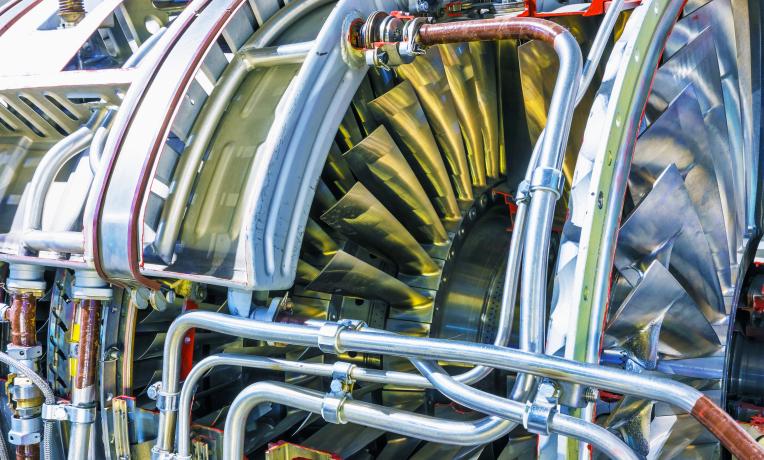Gas turbines: a breath of fresh air
When the engines of a plane rev up and we are momentarily plunged into our seats, chances are that propulsion is due to a gas turbine. Although these energy generators are fundamental to industry, especially to aeronautics, their production of harmful exhaust gases is a cause of concern. ERC grantee Aimee Morgans works on making gas turbines greener.

Gas turbines produce 20% of global electricity and supply almost all of the power for aviation. Plus, they also burn alternatives to fossil fuels, by-products of renewable sources. However, they also produce NOx gases, nitrogen oxides that can also be found in the fumes of diesel cars, and that have severe repercussions on air quality and health.
Finding out how to use gas turbines in a cleaner, more sustainable way is what Prof. Morgans, from Imperial College London, aims to achieve. Producing less NOx gasses is, in fact, possible. It requires using a particular type of combustion known as lean pre-mixed combustion. This needs considerably lower temperatures, thus releasing less NOx. However, lean pre-mixed combustion also leads to a type of instability that produces large, damaging pressure oscillations. The heat variations cause the generation of sound waves. These, in turn, affect the flame, giving rise to a positive feedback effect. The resulting large pressure oscillations can damage the turbine itself.
This complex phenomenon, called thermoacoustic instability, is the focus of Prof. Morgans’ work. Many factors are at play: the physics of sound waves, the chemistry of the reaction, the hydrodynamics of the air flow, all at high pressure and temperature. Modelling these, so that an optimised solution can be found, is outstandingly tricky. The researcher uses an innovative, so-called, coupled method to reduce all the intricacy down to two elements: how the sound waves operate and how the flame behaves. This has already proven successful in simpler combustors.
With her ERC grant, Prof. Morgans is cranking the complexity all the way up to industrial turbines, to provide engineers with information that may help to create the gas turbines of the future.
Biography
Aimee Morgans is Professor of Thermofluids at Imperial College London, where she has worked since 2007. She has PhD, MEng and BA degrees in Engineering from Cambridge University. Her main research topic is thermoacoustic instability - the key barrier to low NOx aero-engines and power gas turbines. She was awarded an ERC Starting Grant (2013) and an ERC Consolidator Grant (2018).





